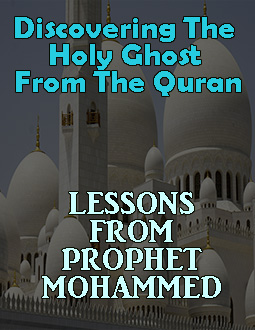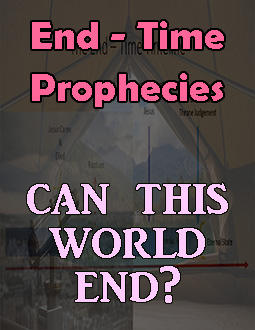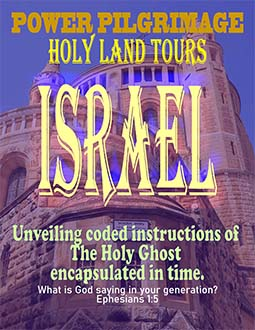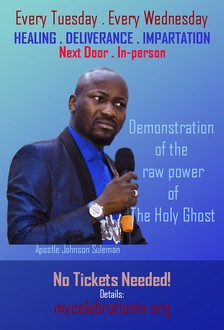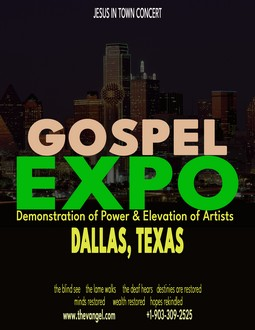Prophet Isaiah, Spearhead of The Messianic Concept
Isaiah looms large when the subject matter moves to Messianic prophets. Chapter 2 verse 2 starts, “In the last days, … “ (NLT). In fact, the sentiments evoked in some quarters tend to suggest that Isaiah was the progenitor of the Messianic idea. Yet, even Moses tells us that since creation was the concept birthed, or at least in the Garden of Eden when God cursed the serpent (Genesis 3:15). That bruising of the serpent’s head has been attributed to Jesus Christ making useless the power of satanic oppression by giving power to his followers (Luke 10:19). Yet, in the concept of the so-called Messianic prophets who tend to quote and reference each other up until Jesus Himself manifested, Isaiah was certainly big on this subject and gave us insight into end-time events. Isaiah also talked about the Holy Seed (Isaiah 6:13).
Isaiah commanded respect due to the prophetic office, he was tested, he delivered. He was allegedly martyred by an unrepentant and intolerant king Mannaseh. Practically, everyone and every pulpit since Isaiah quotes him. Which speaks to the purposes for which the office of prophets was established by God (Deuteronomy 18:15-22). Essentially, prophets were guided by God to guide the people. To distinguish divine guidance from satanic influences, there were tests to decipher who is genuine from fake. Both have consequences for the prophet and for the people either way.
Experience shows that most of the prophets accepted into biblical literature have both short-term and long-term prophecies that include those fulfilled almost instantly (Ezekiel) and those whose fulfillment remain centuries ahead (Jeremiah) of their death. Isaiah provides us with a good template to review (Daniel) these achievements. More importantly, he provides us with guidance even as I write nearly three centuries later. Therefore, Isaiah deserves the accolade of a giant of a prophet. His message simply put was, ‘Trust in the Lord , and lean not on your own understanding’.
The Man - Isaiah
One commentator noticed an irony between prophets that wrote books like Isaiah and Jeremiah and those that did not like Elijah and Elisha. He said that we know so much about the personal lives of the ones that did not write books, yet know so little about the ones that wrote volumes. This explains the humility with which they approached their messages, knowing that it is not about personal ego but about God, and His care for His people. We know very little about Isaiah’s personal life except what he told us that his father’s name was Amoz. Interestingly, his name, Isaiah in Hebrew means ‘salvation is of God’.
Isaiah had two sons with prophetess Abi, the elder called Shear-Jashub, meaning "A remnant shall return", and the younger Maher-Shalal-Hash-Baz, meaning, "Quickly to spoils, plunder speedily" indicating their prophetic significance to the kingdom of Judah. Isaiah was the maternal grandfather of Manasseh who decreed his death and finally killed him by sawing him into two (Hebrews 11:37-38). Manasseh was born by Hephzibah who Isaiah gave to Hezekiah in marriage to save King Hezekiah from the attempts of the nobility to assassinate the king for refusing to marry. It was against Jewish custom for a man to refuse to procreate. Nothing in this arrangement shows that God was involved in the plan making the outcome consequential for the apostle of faith in God.
Isaiah was highly schooled and has access to the royal court. The first part shows in his writing, and Jewish traditions support speculations about the latter. He certainly was not the only prophet ministering during his period. Similar messages and in similar tones are recorded from contemporaries but his messages got direct attention from the kings. Speculations have it that he was a junior scribe brought into the palace by King Uzziah, his cousin. This may well explain the one-statement mention of this king who reigned for 52 years and died of leprosy outside the city gates (2 Kings 15:3; 2 Chronicles 26). The association of Isaiah’s call to the king's death may not be just about dating but also of Isaiah’s emotion. The king is well spoken of in other matters, especially his efforts to stop idolatry in Judah.
From the dating of the call until Isaiah disappeared from documented literature we can account for about 40 years of his ministry. Otherwise, we know little about his personal life. Isaiah ministered in the second half of the 8th Century BC during the First Temple period (740 - 681 BC). The two kingdoms were still in existence and he witnessed the fall of the northern kingdom of Israel to the Assyrians about 722 BC. Isaiah lived in Jerusalem in Judah but he prophesied to both kingdoms and also, to the world at large. Today, Isaiah is tagged, ‘The Prophet of prophets’. He maintained that sin is the only reason for God to allow the wishes of the enemy to prevail over the anointed.
The Social Climate of Isaiah's Time
Israel Is Compfortable About Forgetting God
The Book of the Prophet Isaiah was not written to entertain because the author was gifted. It is a compilation of God’s intention for man. Hence, it is chosen among many for inclusion in the Bible because of its relevance to a people, the Jews - his specific audience at the time and to life thereafter. It is important to understand the prevailing social climate to make sense of the imagery and references that the author uses to make inferences. All the prophets in the Bible had to contend with polytheism and idolatry commonly promoted by the state or nobility. They preached repentance.
Assyria was building up reinvigorating its army beyond the imagination of its neighbors when Isaiah began to minister. The kingdoms thereabout did not foresee the imperial ambitions of Assyria looming large to sweep up the area. Prophet Isaiah foresaw this and began to warn both Israel and Judah giving them counsel on the way forward. As expected, he was not taken seriously. Herein lies a message for the entire world.
Israel at this time was still existing as two kingdoms, the northern kingdom of Israel with Samaria as its capital and the southern kingdom of Judah with Jerusalem as its capital. Despite external harassment, both kingdoms had independence and were relatively peaceful. Hence, social life was routine and the economies were buoyant in both kingdoms. Judah was more stable because the royalty was in the line of David and there was little challenge of leadership. The north had its squabbles for leadership change and the mighty prevailed when succession time came. Otherwise, all was peaceful.
Priests and kings had their own tensions with other dignitaries in authority, particularly high priests as they often crossed lines in the Temple. People's lives revolved around the temple. The king oversees every aspect of life in the kingdom to include The House of God - The Temple. However, when they cross the line to exercise priestly duties, priests tend to resist them. This was the case with the otherwise great king Uzziah who attempted to burn incense in the temple. Heaven responded with an earthquake, the sun shone in through a crack that temporarily blinded him, and he was immediately enveloped with leprosy. He had to be evacuated from the temple and Jerusalem. He continued his reign from there along with his co-regent, his son, Jotham until he died.

Internationally, the rivalry between Assyria and Egypt for superiority intensified. The small territories such as Judah and Israel were usually left to their own devices. Isaiah started by warning both kingdoms to amend their ways, to stop reliance on their sacrifices as the source of protection but to reconsider their service to God, and care of the downtrodden. The consequence of not yielding to this message invited the wave of Assyrian invasion over both territories.
Assyria had a template for expansion by invading neighboring territories on a regular periodic basis. The small independent kingdoms around Judah knew this. They decided to form an alliance to preemptively strike Assyria. King Ahaz of Judah refused to join this alliance, so Aram and Israel decided to run over Judah (Chapter 7). Jotham was deposed by the nobility because of his anti-Assyria alliance views. Ahaz was pro-Assyrian. Prophet Isaiah counseled Ahaz against signing any treaty with Assyria. Just trust God. The king ignored the prophet, and signed the treaty. Eventually, Assyria threw the treaty away and came for Judah a little while later in 702 BC during the reign of King Hezekiah.
The Book of Prophet Isaiah
Kings - Dating plus Politics
The kings and Temple events help to date the works of the prophets and give credibility to the evidence arising out of their ministry. For example, Isaiah may have already been a prophet when King Uzziah was reigning because we are not very sure when he wrote chapters one to five. However, chapter 6 is very clearly dated to prove the date of his prophetic call. Jotham succeeded his father, Uzziah.
Jotham was co-regent twice, once with his leprous father, Uzziah, and secondly with his son, Ahaz. Jotham was deposed by the nobility because of his anti-Assyria alliance views. His son, Ahaz was pro-Assyrian. Jotham and Ahaz both reigned for 16 years. Ahaz died on the throne unconquered. Hezekiah succeeded Ahaz, his father. He reigned for 29 years.
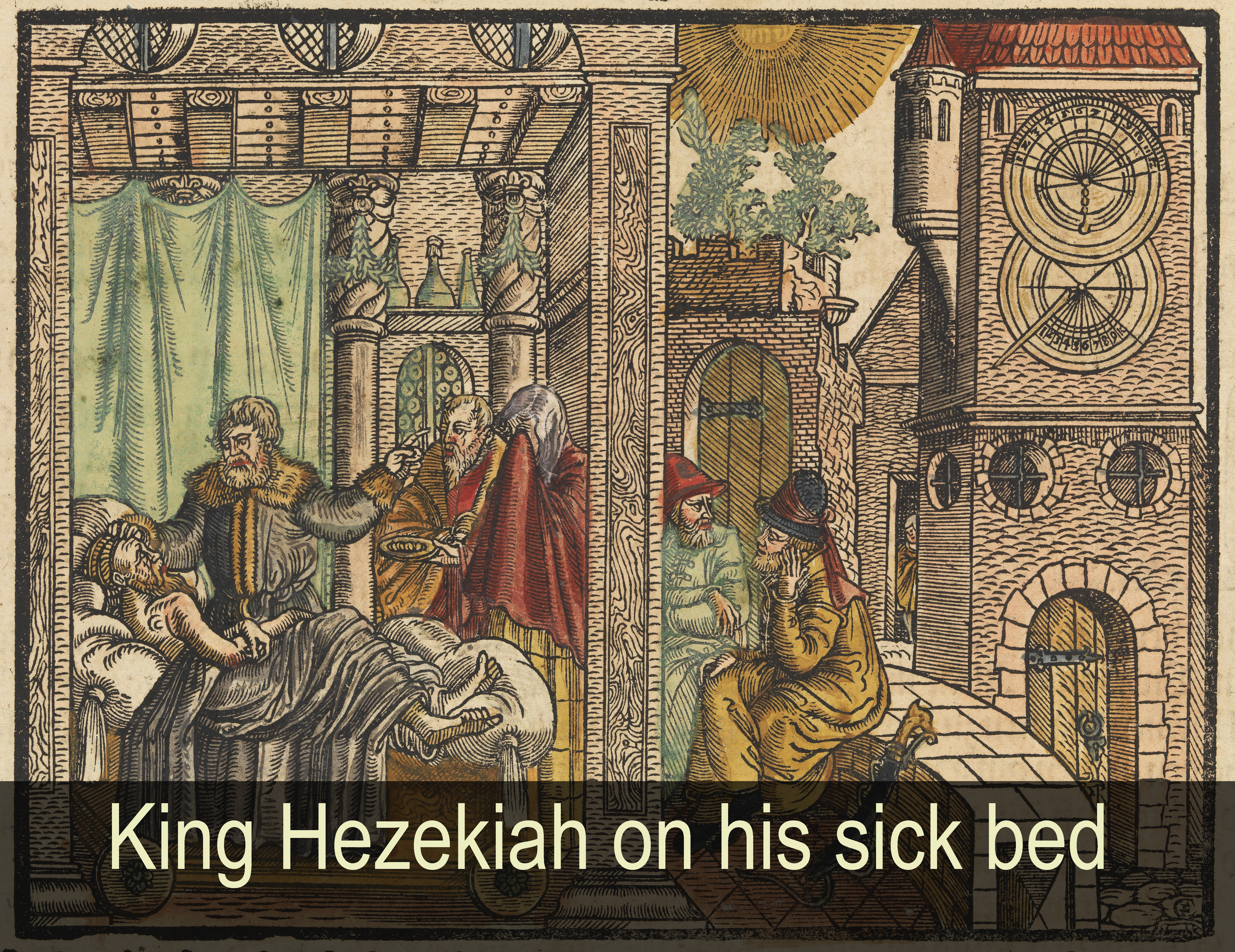
Under Hezekiah, Judah was sobering up with the recent history of the devastation that happened with the elimination of the northern kingdom. Hezekiah did not only make attempts to repair the Temple, the House of God, he spearheaded many religious reforms to promote the monotheistic worship of God. The Assyrians came back since Hezekiah avoided signing any treaties with them on the advice of the prophets. The Assyrians wiped out practically every part of southern Judah and besieged the walls of Jerusalem. With Jerusalem the only standing city of the Jews, Hezekiah went to the Temple to pray to God. Overnight, the Assyrian army disappeared (2 Chronicles 32; Isaiah 33-39).
King Mannasseh killed practically all the prophets including his grandfather, Isaiah. He lived for 55 years rebuilding all the pagan shrines and reinstating unbelievable wickedness in the society. This behavior was not simply as a result of his anger against the God of Israel but also a demonstration of loyalty to Ashur the god of the conquering Neo-Assyrians as demanded by the emperor. Only Prophet Nahum is known to have survived the reign of Mannasseh.
Value of The Book of Isaiah
A remarkable discovery happened in 1946 with the discovery of the Dead Sea scrolls. Essentially, that discovery took the sails out of the argument that there may have been more than one author of the Book of Isaiah. It was found that less than 10 characters were out of place or slightly different from the many other copies available up until that time. Therefore, the translations, transliterations and various forms of copying the book and its content had been done so carefully over the years.
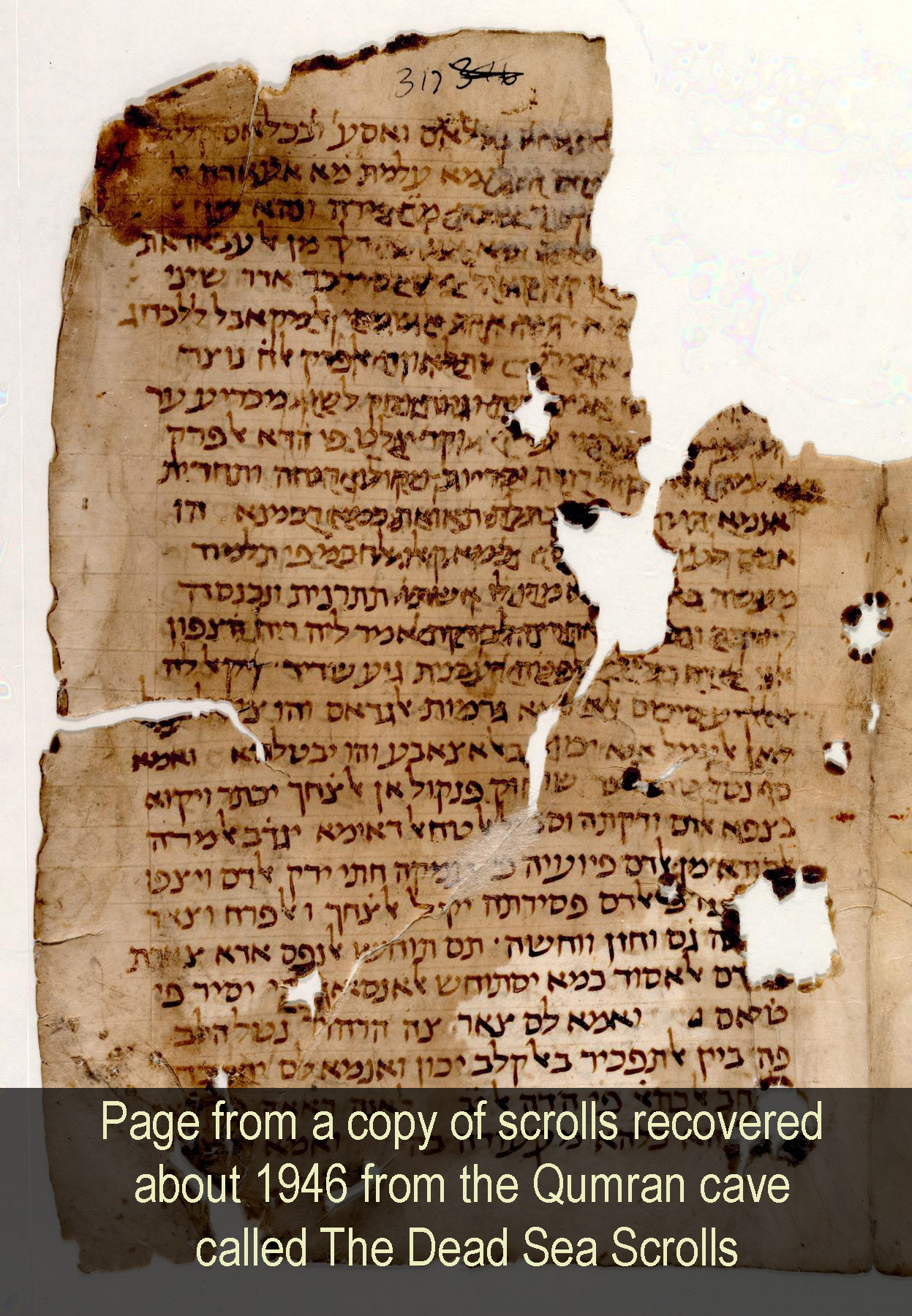
In addition, it brought credibility to the supernatural nature of prophecy since there was no other way Prophet Isaiah could have written history several centuries in advance. Isaiah provided irrefutable evidence that God speaks to men and that God confirms the words of His prophets. Isaiah's name not only means ‘salvation is of God’, he preaches salvation about 31 times in his scroll.
The Book of Prophet Isaiah is reference literature. Several authors, especially by prophets after quote him and his work seem to suggest that the modern scriptural age started from here. Isaiah bridges so many gaps in earlier prophecy that his book becomes an inevitable reference as we attempt to understand life today, and in the future.
Isaiah is referenced by all the Messianic prophets in the Old Testament. In the New Testament, he is quoted a minimum of 21 times. The testimonies of John The Baptist (Isaiah 1:3; Mark 1) and Jesus (Isaiah 61; Luke 4) also confirm that the entire book was written by Prophet Isaiah. In addition to pointing out the Messiah and his purpose, Isaiah was the first prophet to tell us the name of Satan, that is Lucifer (Isaiah 14).
The Concept of Repentance
One of the reasons The Book of Prophet Isaiah is called the fifth gospel is the theme of repentance which reverberates in almost every prophecy. In addition, it reveals Jesus as the Messiah and the purpose of His coming which is to reconcile man to God through repentance quoted in several sections of the book and referenced in many parts of the New Testament. Isaiah preaches a form of inner transformation leading to social justice and consequently, a utopia existence under a messianic rule.
Isaiah’s uncleanliness is placed in stark contrast with God’s purity and holiness. An overwhelmed Isaiah humbles himself, confesses his sins and he obtains forgiveness. Chapter 6 verses 8 - 13 also makes us realize that rebellion against God is suicidal. Even as Isaiah volunteers to carry the message to his people God warns him sarcastically that his people are too stubborn to capture the message but that only severe punishment will cause them to reconsider.
God made Isaiah to understand His plan to the ultimate paradise marches on irrespective of the jewish stand. It would have been easier for them to accept their priestly role to the entire world than assuming an entitlement mentality that will lead to their destruction. Therefore, Isaiah prophesied that their land will be destroyed and they will be carried away into slavery. Nevertheless there will be a remnant including believers that will return. When they return, they will continue to burn under the rulership of foreign nations and the kingdoms are not restored. Of the remnant will the Messiah emerge from the stump of the shattered line of David (Isaiah 11).
Highlights in the Book of Isaiah
The book of Prophet Isaiah is commonly reviewed as two sections following on the chaperization of Stephen Langton, former Archbishop of Canterbury. While some academics suggest that it may contain more than two sections and ascribe authorship to different individuals, it remains best to use the two-part layout at this time. Stronger evidence points to the single authorship of the book by Prophet Isaiah. The Book will be summarized in two sections, Part 1 - Condemnation and Judgement section and Part 2 - Conciliation and Hope section.
Part 1 - Condemnation and Judgement, Law and Punishment - Chapters 1-39
Section A - Sins of Israel and Judah - Chapters 1-12
Theme - all nations will come here to worship God
Judgement and Hope
Chapters 1-5 - a synopsis of the entire ministry of Isaiah
Chapters 1-2 - authorship and purification by fire
Old Jerusalem filled with rebellion, idolatry and injustice will be replaced by a New Jerusalem that serves justice, hope and peace for all nations.
Chapters 2 - God’s purpose for Israel
Chapter 6 - Documentation of Isaiah’s call
The summary of the entire call and documentation of the book of Isaiah including the introduction of the Messiah and the revelation of God, The Father, God, The Son and the God, The Holy Ghost. Promise of a Holy Seed growing out of the stump. The invasions of Assyria and Babylon reduce Israel, the tree to a stump.
Chapters 7-12 - King Ahaz, your kingdom is going down if you do not repent.
Chapter 7 - prophecy of a spirit-empowered Immanuel, that is, God within the New Jerusalem.
Chapter 9 - New Jerusalem and freedom from oppression
Chapter 11 - A new branch from the stump of David, son of Jesse’s family.
Section B - Judgement and Hope for all nations
Chapters 13-23 - fall of Babylon and neighbors of Israel
Chapters 24-27 - parable of two cities. The lofty city, Old Jerusalem implied, archetype of arrogance and rebellion against God and the New Jerusalem where peace and love reign.
Section C - Rise and Fall of Jerusalem - Chapters 29-39
Chapters 28-35 - Jerusalem’s leaders accused of distrusting God by trying to forge an alliance for protection from Egypt.
Chapters 36-38 - Hezekiah’s rise to power and his cry unto God for salvation.
Chapter 39 - Hezekiah’s fall came after he showed the Babylonians his national treasures. They came back for them 100 years later in betrayal.
Prophets and Prophecy
The prophetic ministry became a dangerous spiritual ability and discipline to have since the instructions by Moses (Deuteronomy 13). Traditionally, men could care less about the letter of the law particularly when an action became popular. Herod went after Peter because the Jews were excited that he beheaded James (Acts 12). Clearly many prophets were martyred for their unpopular messages. It did not matter that they were encouraging the people to return to God of Israel. In as much as their messages were not received they faced the danger of death.
It is unbelievable that the same Jews hold these prophets as national treasures as sources of pride in modern times. Their predictions have borne the test of time and study. One of the tests modern theology applies to prophets is to subject their declarations to bifocal examination. Their claims are reviewed under so-called near-far fulfillment radar. Essentially, which of their predictions came true in near term while they were still alive, which ones have come true after their death and which ones are showing promise of fulfillment centuries after them. The short term fulfillment marks them out as people to be listened to.
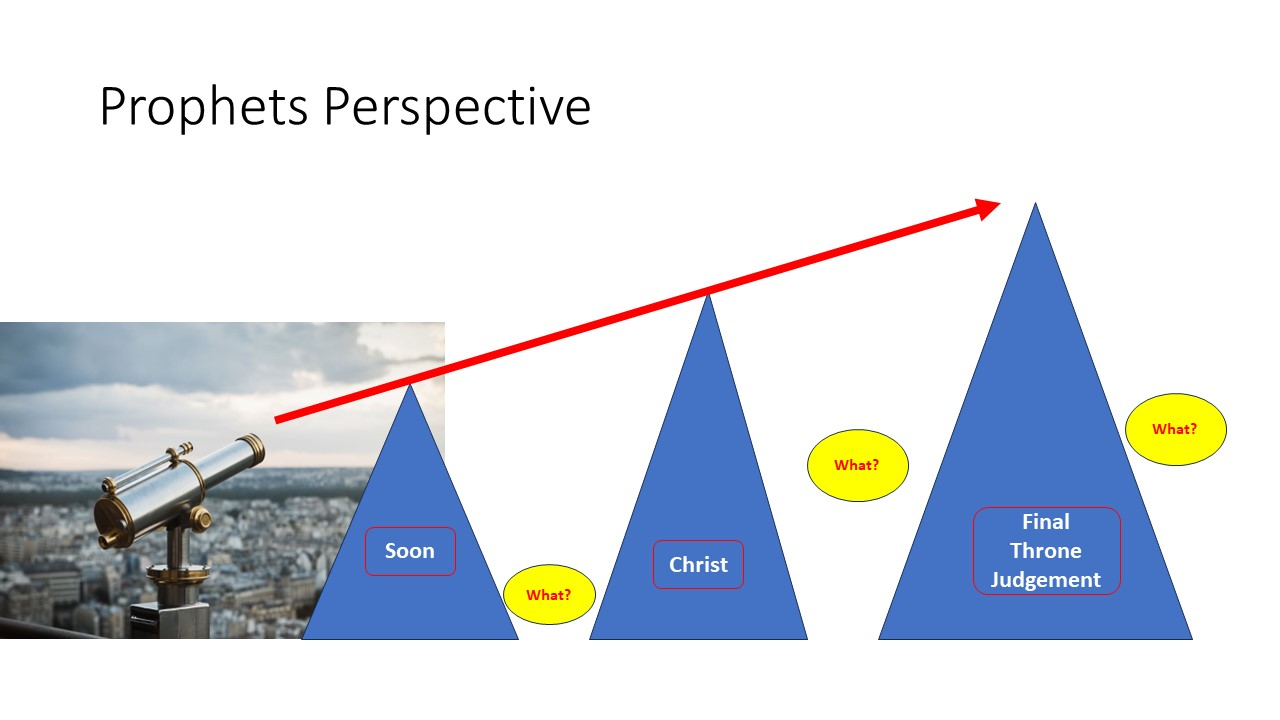
Mid-term fulfillment, say months or years while they are alive or recently dead confirms that their words need to be taken seriously and future or yet to be fulfilled predictions are not likely meant for just the Jews but the entire world. For example, the transition from Isaiah Chapter 39 to Chapter 40 is apparently a teleportation of Isaiah from 720 BC to 530 BC. How did he know so much at the time, and we have enough evidence in modern times that his words have been fulfilled to the letter. Yet, he was martyred with the cooperation of the social climate in his time.
Visions have a way of communication including jerking you from rational thinking as you try to make sense of what you perceive. A massive holy image of God on a throne covering the Temple must have been overwhelming for Isaiah. But there was a message to be decoded in Isaiah noticing two separate authority seats in one location. The throne should be in the palace not in the Temple. The Temple should have the High Priest as the spiritual authority figure not a king. Isaiah had to work through the meaning of these symbols to understand what God was saying to him.
The prophetic ministry of Isaiah specifically revealed unto us the names, Emmanuel and Lucifer. He also revealed the character of the Holy Spirit as The Spirit of God. In the final part of his book, Isaiah was first to code the concept of repentance unto righteousness that eventually led him to describe the Messiah. His themes include repentance unto righteousness, responsive to correction, and return to godly morals all in answer to an instant inner transformation of recognition that one is a sinner.
Revelation of The Holy Spirit
When one considers Isaiah 6:8 which states “Then I heard the Lord asking, “Whom should I send as a messenger to this people? Who will go for us?” Statements like these have been used to query the omnipotence of God because it suggests that God needed to make consultations with his hosts before deciding on the next course of action. We see similar statements in the creation story (Genesis 1) and multiplication of languages at the Tower of Babel (Genesis 11) for example. The singular refers to Jesus who has direct contact with man and the plural refers to the entire Godhead, rather a committee of angels (John 12:36 - 41).
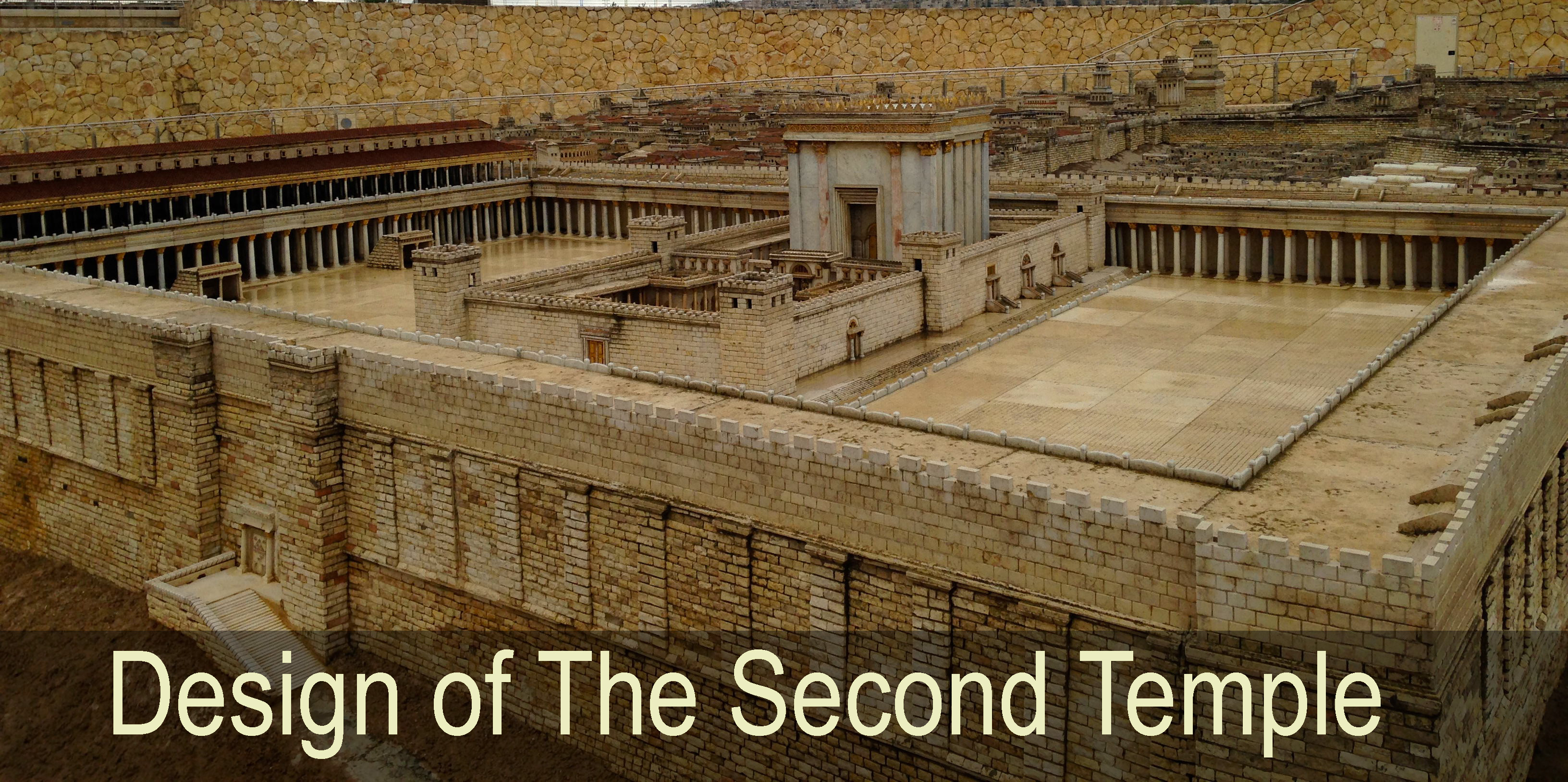
However, with the benefit of hindsight and advancing frontiers of knowledge, we now know that God can choose to manifest in many forms. For example, no angels were specifically assigned to Elijah to stop the rain and to reopen heaven. Miraculously, Elijah overtook the chariot of King Ahab. A chariot has many horses racing and they started well ahead of Elijah who was still praying. Furthermore, at the baptism of Jesus Christ, a dove was seen to represent God the Spirit, which was different from the voice that identified Jesus Christ. In other words, God chose to manifest Himself in three different formats on that occasion (Matthew 3:16-17).
If a Chief of Operations (COO) makes a declaration on behalf of his company, that is in agreement with the Chief Executive Officer and the Chairman of the Board of the company, it is unlikely that any argument will follow. The COO would have used the ‘Us’ language and no one will query that it was on behalf of the company. I do believe that Isaiah 6:8 included an exposition of the Holy Spirit to Isaiah in a dimension that he did not grasp. Yet, he talked a lot about the Spirit of God in several other verses of his scroll. We did not know to call Him The Holy Ghost until Paul explained the cloves of fire on the heads of the disciples at Pentecost.
Manifestation of The Living Holy Ghost in the 21st Century
Apostle Johnson Suleman tours the world every month. I mean his foot touches every continent every month. That is an opportunity for you to research the truth (Matthew 7:7-8). Bring your own candidates to any location convenient for you and test Jesus Christ. It is so simple. That was how I found Jesus myself.
The Medical Council of Nigeria, the regulatory authority for the practice of medicine - the science of healing in Nigeria organized doctors from Edo State in an investigatory effort sponsored by the Council and the Edo State Medical Association. They went unannounced to the healing service to prove this strange healing mechanism and it is claimed that all the muslim members of the panel gave their lives to Christ in that church. This claim is yet to be refuted by either organization. In other words, even in the 21st Century, the prophecies of Isaiah live on as Gentiles have received salvation and apprehended The Holy Ghost. God is not dead and the Holy Spirit is a living Spirit (1 John 4:13).
Relevance to us
Up until Apostle Paul, Christianity was essentially a jewish faith. Even the converts at the Pentecost were Jews who had come back for the feasts in Jerusalem. It was Paul who decoded the mystery plan of God for the Gentiles, that is non-Jews. Paul tells us that if the Jews had not resisted Jesus with their stubborness, the benefits of the power of Jesus may not have become so easily available to the Church Age Gentile Christians (Romans 11:28). Paul explained in more detail the prophecies of Isaiah and the revelation of Simeon at the circumcision of Jesus as the source of light to the nations (Luke 2:32).
In other words, neither Jews nor Gentiles should allow science or other objections to confuse them. Christianity is for everyone and it begins with the humility to accept our sinful nature and a decision to reconcile to the wish and path of God as exemplified by Jesus Christ.
Nicodemus probed and his name remains documented as a biblical legacy (Matthew 7: 7-8).
Conclusion
The supernatural influences human existence
Isaiah provides a platform to resolve the role of the supernatural in human existence. Prophecy is supernatural while history is physical evidence of the predictions. The 1946 discovery of The Dead Sea Scrolls presents a conundrum for anyone challenging extraterrestrial influence on human affairs. The idea that Isaiah may not have written the latter part of his book is buried in evidence by the discovery of the entire manuscript intact in its original form. This buttresses the evidence in the 1879 discovery of the Cyrus cylinder and volumes of scrolls documenting Jewish history in the Assyrian room of the British museum. Such evidence provides hindsight to help understand the confluence of heavenly involvement in social trends and history prophesied by Isaiah.
The book of Prophet Isaiah is the most highly verified and referenced book of the Bible. The book defines human darkness brought out by unrighteousness in stark contrast to the purity and holiness of God. Yet, God values man and promises reconciliation through if only man can humble himself, ask for forgiveness, repent and be useful for the purposes of God. The plan of God to create a utopian paradise on earth headquartered in Jerusalem under the reign of The Messiah marches on because a remnant will always remain useful servants in the good books of God.
Mission Fields
People Saw It
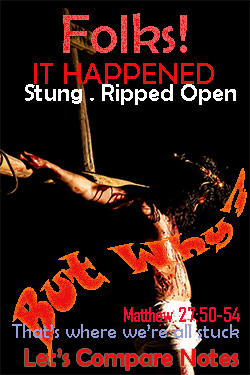
Comments

Our Facebook page linked directly above is a very vibrant community where various topics get fleshed out. We also engage in discussions on Twitter and our LinkedIn group is growing beyond imaginations. Feel free to post your comments in your favorite format.

